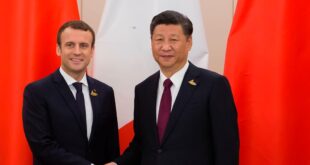Muhamad Yehia.. Cairo
The government of Zimbabwe has announced an initial compensation of US$3 million (£2.3 million) for white farmers whose properties were taken under a contentious government initiative over twenty years ago.
This marks the first disbursement under the 2020 compensation agreement established between the government and local white farmers, in which Zimbabwe pledged to pay a total of $3.5 billion (£2.6 billion) for the confiscated farmland.
Between 2000 and 2001, thousands of white farmers were forcibly removed from their land, often through violent means
While the land seizures aimed to rectify historical injustices from the colonial period, they ultimately contributed to the nation’s economic downturn and strained relations with Western countries.
The payment announced on Wednesday will address the first 378 farms out of a total of 740 that have received approval for compensation
This amount constitutes 1% of the overall $311 million set aside for the initial round of payments
The remaining funds will be disbursed through US-dollar denominated Treasury bonds, as stated by Finance Minister Mthuli Ncube
He emphasized, “One of our commitments in our efforts to reform the Zimbabwean economy and settle our debts is to compensate former farm owners who lost their properties during the land reform program. We have now started to fulfill that promise.”
Harry Orphanides, a representative for the farmers, informed the BBC that more farmers are now expressing interest in participating in the compensation process.
However, a significant number of former farmers have yet to enroll in the program and continue to retain their title deeds.
The government has limited its compensation to “improvements” made on the land, refusing to pay for the land itself, arguing that it was unjustly taken by colonial powers.
It has also prioritized compensation for foreign-owned farms through separate negotiations.
In January, Zimbabwe initiated compensation payments for foreign investors whose farms were safeguarded under bilateral investment agreements.
Following its independence in 1980, which ended decades of white-minority rule, Zimbabwe saw most of its fertile land owned by around 4,000 white farmers.
The land reform aimed to redistribute land from white owners to black farmers, addressing the injustices of colonial policies that had displaced thousands of black farmers and reserved prime land for white settlers.
In 2000, then-President Robert Mugabe endorsed land invasions carried out by government forces and vigilante groups, leading to widespread international criticism.
President Emmerson Mnangagwa, who succeeded Mugabe after a coup in 2017, has been working to rebuild relationships with Western nations.
Mnangagwa has asserted that land reform is irreversible, yet he has pledged to provide compensation as a crucial means of restoring relations with Western countries.
For over twenty years, the southern African nation has been excluded from the global financial system, resulting in a struggling economy burdened by significant foreign debt.
Experts believe that the land compensation initiative represents a vital move towards improving ties with Western nations and steering clear of international sanctions against Zimbabwe.
 موقع وجه أفريقيا موقع وجه أفريقيا هو موقع مهتم بمتابعة التطورات في القارة الأفريقية
موقع وجه أفريقيا موقع وجه أفريقيا هو موقع مهتم بمتابعة التطورات في القارة الأفريقية



